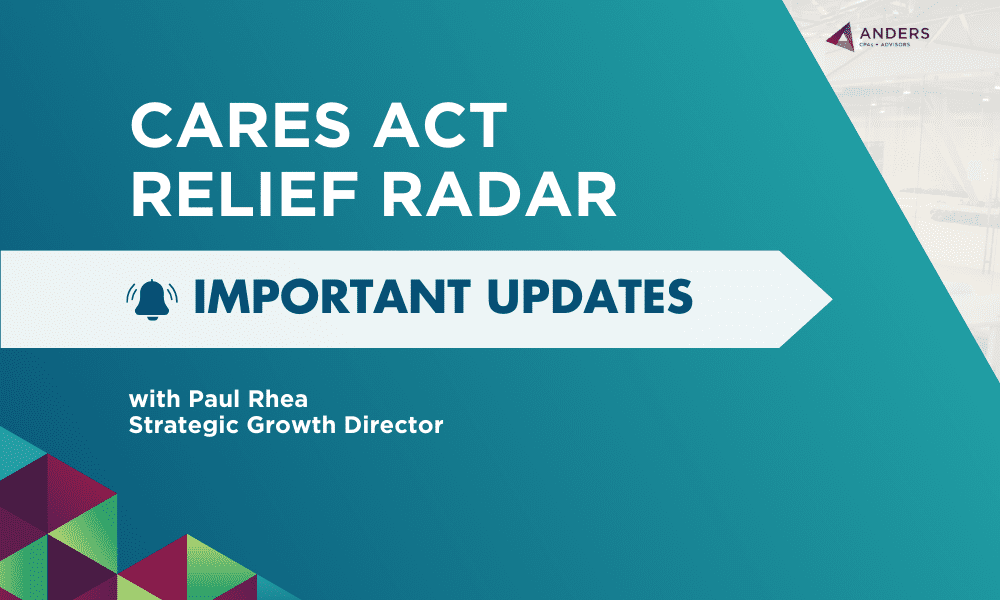The Employee Retention Tax Credit (ERTC), originally a part of the Coronavirus Aid, Relief, and Economic Security (CARES) Act in March 2020, was created to encourage businesses to retain employees during the COVID-19 pandemic. Congress later expanded and extended the ERTC to apply to eligible wages through the end of 2021. However, the Infrastructure Investment and Jobs Act (IIJA), signed by President Biden on November 15, 2021, retroactively ends the ERTC as of September 30, 2021, one quarter earlier than anticipated, unless the employer is a recovery startup business.
On December 6, 2021, the IRS issued guidance (Notice 2021-65) providing clarity on how taxpayers should pay back any taxes for 4th quarter 2021 that they are no longer eligible for along with how to avoid penalties. As a result of this retroactive termination and new guidance, employers may need to review their payroll tax compliance to make sure it conforms with these changes.
What is the ERTC?
Prior to the enactment of the IIJA, the law allowed a 70% credit on up to $10,000 in eligible wages per employee per quarter for all of 2021 if an employer met certain criteria. As a result, an eligible employer could receive up to $28,000 in credits per employee for the year ($10,000 quarterly wage max x 70% x 4 quarters). The IIJA terminates this credit program on September 30, 2021 except for recovery startup businesses.
Who is still eligible for the ERTC in Q4?
A recovery startup business is defined as any employer that:
- Began carrying on a trade or business after February 15, 2020, and
- Had average annual gross receipts of less than $1 million.
If an employer meets these criteria, they are still eligible for the ERTC in 4th Quarter 2021, up to the $50,000 startup business credit maximum. If not, the ERTC is no longer available for wages paid by that employer after September 30, 2021.
Do I need to pay back any taxes for Q4?
The IRS issued guidance (Notice 2021-65) providing clarity on how taxpayers should pay back any ERTC taxes for 4th quarter 2021 that they are no longer eligible for and how to avoid penalties. The guidance consists of two parts depending on if 1) the employer received an advanced payment of the ERTC via Form 7200 or 2) the employer reduced their EFTPS deposits in anticipation of the ERTC.
- Employers that received advance payments of the ERTC for wages paid in 4Q 2021
These employers will avoid failure to pay penalties if they repay those amounts by the due date of their applicable employment tax return that includes the fourth quarter of 2021, i.e. January 31, 2022 – due date of the 2021 4Q 941. - Employers that reduced employment tax deposits anticipating the ERTC in 4Q 2021
These employers will not be subject to a failure to deposit penalty for federal tax deposits retained on or before December 20, 2021 if all the following apply:- The employer reduced its deposits consistent with the rules in Notice 2021-24, i.e. anticipated receiving the ERTC;
- The employer deposits the retained amounts on or before the relevant due date for wages paid on December 31, 2021, regardless of whether the employer actually pays wages on that date. Deposit due dates will vary based on the deposit schedule of the employer.
- The employer reports the tax liability resulting from the termination of the employer’s ERTC on its employment tax return or schedule that includes the period from October 1, 2021 through December 31, 2021, i.e. files their 2021 4Q 941 properly.
It’s important to note that the IRS will not waive failure to deposit penalties for employers, other than recovery startup businesses, if they reduce deposits after December 20, 2021 for wages paid during the fourth quarter.
Finally, if an employer does not qualify for relief under Notice 2021-65, the IRS will consider reasonable cause relief if the employer replies to a notice about a penalty with an explanation.
Find out if your business is eligible for the Employee Retention Tax Credit.
Due to the IRS ERTC moratorium, Anders will no longer be accepting new ERTC clients until the IRS issues additional guidance related to this moratorium and the options available to affected businesses. Learn more about the IRS’s ERTC moratorium.





